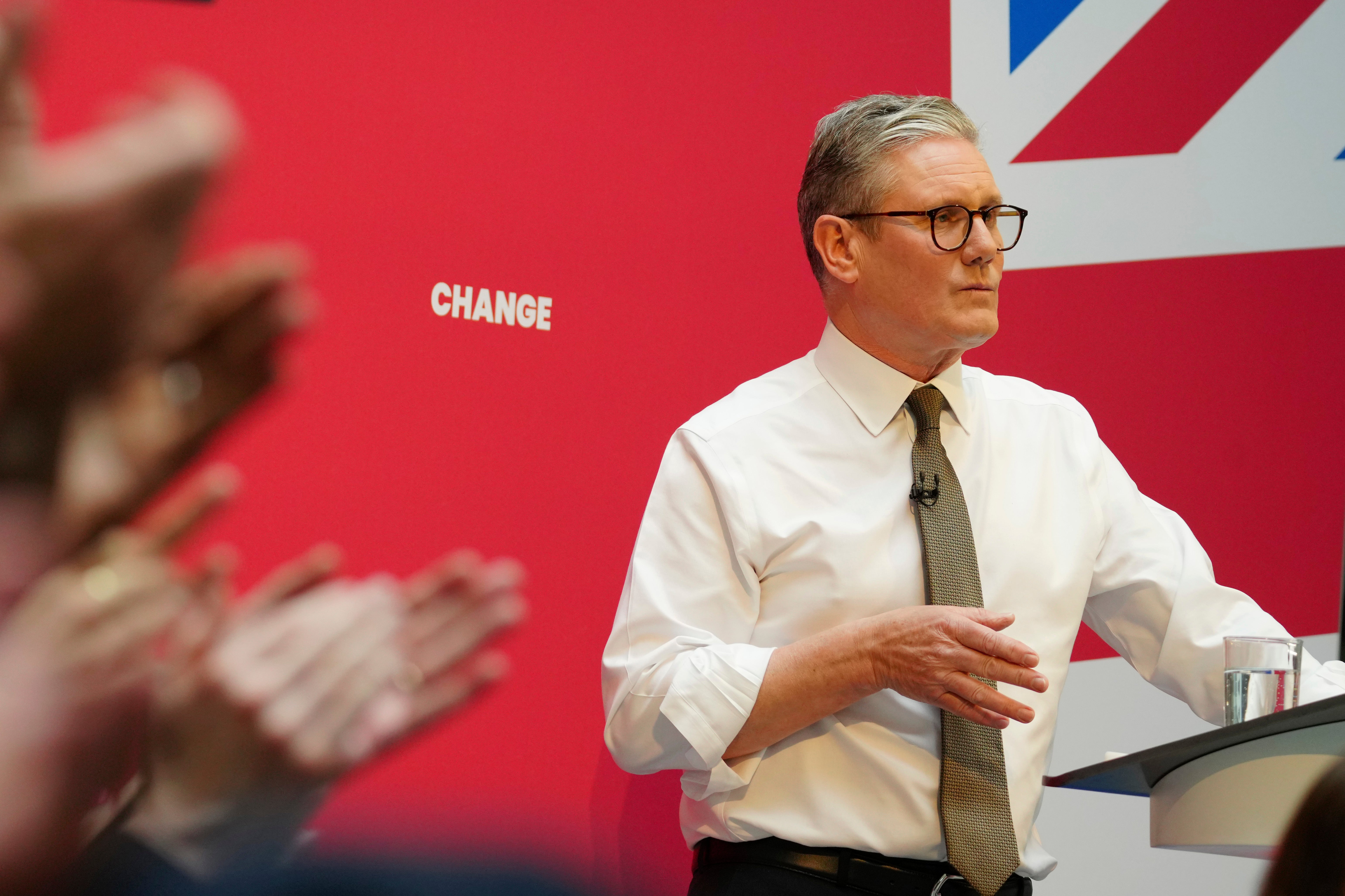The EU-sized hole in Starmer’s ‘growth, growth, growth’ manifesto…
You wouldn’t know it from Keir Starmer’s speech at his manifesto launch, but transforming Britain’s relationship with Europe – just as it shifts further to the right – will be one of his biggest priorities in office, says Andrew Grice


Growth is our core business,” Keir Starmer said as he unveiled a Labour manifesto aimed squarely at reassuring disaffected Conservative supporters who have not yet moved into the Labour column.
“Growth, growth, growth” is Starmer’s equivalent of Tony Blair’s “education, education, education”. With some, but not all, tax rises ruled out, Labour would need to grow the economy to honour Starmer’s “no return to austerity” pledge, because he would inherit £20bn of Tory public spending cuts. He argued that repeating the growth levels of the Blair-Brown governments would raise tens of billions of pounds a year for public services.
Seeking “a mandate for economic growth” doesn’t make it happen. Starmer admitted there is “no magic wand”, but insisted he had “a plan for growth”. However, there’s a new cloud on Labour’s horizon that it doesn’t want to talk about.
I’m told senior figures are worried that the weakened positions of France’s Emmanuel Macron and Germany’s Olaf Scholz after the far-right’s success in the European parliament elections will make it harder for Starmer to reset UK relations with the EU. Labour regards reducing trade barriers with the bloc as one of the easiest ways to boost growth.
Labour is right to be worried. European diplomats tell me the French president and German chancellor will probably focus on propping up their positions at home, and so will be less able to provide the strong EU leadership and creative thinking needed to resolve the “British problem”. Despite the election of a more EU-friendly government here, the UK could easily slip down the EU’s priority list.
Macron and Scholz might want to look tough on the UK to their domestic audience – especially if the far right is calling the shots in France after the snap election Macron has gambled on to try to halt the march of Marine Le Pen’s National Rally party. If she becomes president in 2027, Labour might become less keen on closer links with a turbulent EU – though if Donald Trump returns to the White House, Labour would have nowhere else to go.
Scholz, highly unpopular in Germany, is seen as a lame duck and has regional and national elections to fight over the next 15 months. Ursula von der Leyen, likely to be reconfirmed as European Commission president despite the advance of the far right, would want to forge closer UK links and a veterinary agreement to reduce border checks could be an early win. But as one Brussels insider put it: “She couldn’t do it all on her own. It would need strong leadership from France and Germany.”
At the very least, Starmer’s key offer to the EU – an ambitious security pact extending from defence to economic security to break down trade barriers – could take longer than Labour hoped, delaying the expected boost to UK growth.
Today’s Labour manifesto promises to “reset the relationship and seek to deepen ties with our European friends, neighbours and allies”. It adds: “Britain will stay outside of the EU. But to seize the opportunities ahead, we must make Brexit work… That does not mean reopening the divisions of the past. There will be no return to the single market, the customs union, or freedom of movement.”
Starmer, who didn’t mention the EU in his speech today, has no intention of frightening Leave voters or giving the Tories an excuse to remind people that he urged a second referendum on the Brexit deal.
The manifesto’s mantra masks the scale of Starmer’s ambition. Some shadow cabinet members hope the UK will have moved gradually towards a form of customs union by the following general election. The single market is off limits because the UK, as a non-EU member, would be a "rule-taker" without having a role in setting the rules.
Some Starmer advisers insist he can still reset relations despite the turmoil on the continent because the turbulence means the EU would need the UK even more. “They will be less arrogant and will want to strengthen Europe,” one said. They argue that Labour wants “a new relationship, not a renegotiation”. In other words, Starmer hopes that improving the atmosphere after the Tory era would get him a long way.
Brussels will eye the UK election result closely: if Labour wins big, and looks like having 10 years in power, the EU might go further, knowing the Tories couldn’t reverse any changes soon.
As director of public prosecutions and Labour leader, Starmer has shown he is good at moving institutions in the direction he wants them to go. His skills would be tested on the EU, an institution not under his control. You wouldn’t know it from the Labour manifesto, but transforming the EU relationship is one of Starmer’s biggest priorities. It has just got harder to achieve.






Join our commenting forum
Join thought-provoking conversations, follow other Independent readers and see their replies
Comments